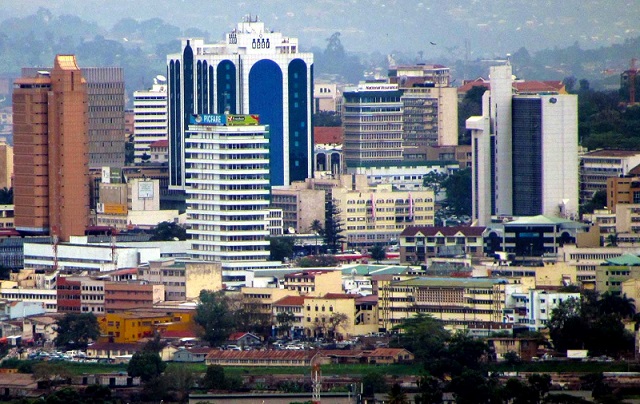
The reasons, risks and costs of Uganda new shift in economic policies and diplomatic relations
THE LAST WORD | Andrew M. Mwenda | We are a week away from celebrating NRM’s 39th year in power and the country is going through a major economic and diplomatic policy shift. The government is moving away from a free market economic system to one where the state is playing an increasingly central role.
The state is pouring money into private firms as equity. It is also giving others building factories off taker agreements as an incentive. Theoretically, I agree with what the government is doing. But in practical terms, this policy shift is reintroducing the very pathologies free market reformers had warned against.
In the last few years, government has invested Shs 750 billion in a private pharmaceutical company, Shs 560 billion in a private sugar company, Shs 200 billion in a private construction company (that had already gone burst), and another Shs 1.4 trillion in a semi-private hospital that the country does not need.
Again, I would theoretically be inclined to agree with these decisions. However, the way these decisions are made is worrying. And they have been made when funding for major roads in Kampala and highways linking Uganda to major towns and borders are in a state of disrepair.
In the first quarter of the 2024/25 budget, the treasury released only Shs 1.0 billion (and I mean shillings one billion) to UNRA for road development. Meanwhile, infrastructure in Kampala City, the capital of the country, has literally fallen apart. Uganda’s most productive citizens lose four hours daily in traffic jams, endure the stress of potholes and giant craters in the middle of roads, drive through muddy waters and garbage to get to office. Then they spend more time in garages repairing their broken shock absorbers while spending money on spare parts from Japan.
In 1986, Uganda’s GDP was about US$4.9 billion. However, this was a distortion because government was fixing the exchange rate. If the dollar was adjusted to the black-market rate, GDP was US$1.2 billion. However, this is also a distortion because the criminal nature of this market inflated the dollar value.
So, I calculated backwards from 1992 (when the exchange rate was liberalized) using the annual rate of GDP growth. Our GDP in 1986 comes to US$2.1 billion, which, when adjusted to 2024 prices, was US$4.1 billion. Today, our GDP is US$61.3 billion (according to the IMF).
At US$4.1 billion, it makes sense to have monopolies – whether by the state or by the private sector. However, at US$61.3 billion, the economic pie is large enough to encourage competition. Yet government has given off-taker agreements (literary creating monopolies) to a Chinese company called NDTC to produce medical syringes, to East African Medical Vitals to produce surgical gloves, to Global Gases to produce oxygen (a take-or-pay agreement for capacity that is 20 times what Uganda needs), another company to manufacture cannulas and another, to produce digital stamps for URA.
The worst of these off-taker agreements is to the controversial Enrica Pinetti to build a 204-bed hospital and 64-bed 3-star hotel in Lubowa at US$376 million. It guarantees her US$150m worth of patient expenditure. If patients do not show up, and they won’t, Pinetti still pockets US$150m. How did we get to this madness?
When it captured power, the NRM was a left-wing organization hostile to neo-liberal (or free market) economic policies. During the struggle, the NRM had criticized the free-market reforms promoted by the UPC government of Milton Obote. In its Ten Point Programme, it promised a mixed economy where the state played a direct role as a producer. Once in power, the NRM was forced by Western creditor countries and institutions to accept free market reforms. This was understandable because the collapse of the Soviet Union and its communist allies had discredited left-wing policy ideas of state control.
To its credit, the NRM summoned the courage to change its ideological posture and embraced these reforms as its own. So, government disbanded state policies, sold state enterprises, liberalized and deregulated the economy and opened the country to foreign direct investment. The justification was that if you allow governments to allocate resources, politicians will hand them to firms owned by their friends and relatives as patronage for political support rather than to the most competent and deserving firms that can produce economic dynamism.
There was a lot of evidence across Africa and other poor countries to prove this. Yet there was also a lot of evidence from successful countries like South Korea, Singapore and Taiwan (and China today) that direct state involvement in the economy is a prerequisite for rapid economic transformation. Contrary to claims by moralists, it is not true that the most successful countries (except for Singapore) had low or no corruption. On the contrary, South Korea and today China have had very high levels of corruption and patronage alongside rapid economic transformation.
From the little evidence we have, successful countries, were deeply involved in the economy supporting private enterprises and/or using state owned companies. However, and without exception, they fostered competition. South Korea and Japan did not support only one private motor company but several. China has many construction companies owned by the state and in competition with each other. Uganda’s state should be involved in the economy promoting private businesses with cheap loans and subsidies or with equity investments in them. But it should do this in such a way that it avoids monopolies and fosters competition.
Uganda’s ideological shift to state involvement in the economy has been occasioned by changing global power dynamics. The late 1980s witnessed the collapse of the bipolar world order and its ideological divide between capitalism and communism. This was replaced by a USA-led unipolar world order where “liberal democratic capitalism” reigned supreme. It made sense for NRM to ally with the sole superpower to access economic resources and diplomatic support from her and her allies. But this was conditional on NRM adopting their policy preferences.
The rise of China, India, Russia and other nations has been occasioned by the relative decline of the West in trade, investment and financial assistance to poor countries. This is encouraging countries like Uganda to change policy and to disregard Western lecturing and hectoring. I do not agree that its good for Uganda to become hostile to Western countries. We can make new friends (politically) and acquire new partners (in trade, financing and investment) without alienating old allies and partners. Besides we are the chair of the Non-Aligned Movement. We must not only be non-aligned, but we should also be seen to be non-aligned.
*****

amwenda@ugindependent.co.ug
 The Independent Uganda: You get the Truth we Pay the Price
The Independent Uganda: You get the Truth we Pay the Price



